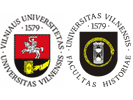Having reached it’s strategic objectives (membership in EU and NATO), Lithuania encountered with the problem of trawl for a new societal development visions. That is why Lithuanian mentality, facing with such strong challenges, as EU-integration and globalization, is being in quest of national identity components “inventory” and reevaluation in the context of a new circumstances.
In this regard sport, universally accepted as substantial component of national identity, becomes actual for knowledge. Unfortunately, in Lithuania by now academic writing on this subject astonish at its fragmentary nature and confine it mainly to the facto-graphy, while sport-minded individuals are professionally over engaged. Therefore preliminary research has shown, that sport, as a socio-cultural phenomenon in the field of interdisciplinary studies is non-existent in Lithuania. Considering what have been said, we may state decisively, that present article will be one of the first attempt to define and evaluate the role of sport in society and the sphere of politics in a more broadly way. It also will be the first attempt to search for roots of broadly entrenched stereotypes and assessments about involved subject.
One of the most vivid stereotypes, which embody Lithuanian sport specifics, is affirmation, that basketball is Lithuanian national religion. Paradoxically Lithuanians fancy themselves due to basketball victories, but perhaps they are better known for football defeats. In opposition to the rest of Europe basketball truly is the most popular sort of sport in Lithuania, yet till now nobody have tried to analise historical and socio-cultural reasons of such phenomenon in a more through way.
In 2003, after the 64 years long break, Lithuanian national basketball team won Europe championship golden medals. That stimulated strong, but momentary manifestations of “emotional community”. Last-mentioned victory was turned to account by politics for political needs (for instance, political image mintage) no how related to the victory itself. In turn, everybody, who was engaged with “extrinsic” state affairs in the momentum of triumph, was criticized. Symbolical “appropriation” of past and present sport achievements assumes various forms in politics. Characteristic example – the first in Europe impeached President Rolandas Paksas during his election campaign successfully played on his acrobatic flying qualification thus refreshing a strong association in historical consciousness, connected with the interwar period Lithuanian heroes S. Darius and S. Girėnas, who over flew Atlantics.
During the Soviet times sport had to serve for state image and communistic ideology needs. Nevertheless, Lithuanians had been trying to round representative commands on republican and local level (incorporating a local foreign-born). In Soviet Union something similar was maybe succeed only by Georgians and Armenians. So we may raise a hypothesis whereby last-mentioned ability reflects Lithuanian communist leaders and / or sport functionaries acceptance of such kind of “nationalism”. Although the present affirmation is difficult to prove without deeper investigations, yet it played a crucial role, in contrast to other Soviet republics, in sustaining and reinforcing Lithuanian national identity under the circumstances of sovietization. The same sportsmen’s political-ideological stance was of no particular importance, because the main thing was the openness of the same victory to nation’s treatments about resistance to occupant (victories over CSKA like victories over soviet army, and victories over Dinamo like victories over KGB). Hereby in Lithuania sport obtained same strain of cultural resistance.
After regaining independence, Lithuanian sport was forced to switch from state regulated infrastructure to the private sector. This process was painful. More then one and a half year lasting boycott of international sports federations almost ruined Lithuanian sport’s system. Sudden changes harmed the sphere of sport much stronger, than others also reformatted spheres. Recovering from the boycott induced crisis, not every branch of sport managed adequately readjusts to the new conditions.
In comparison with the Soviet times, management, advertisement and mass-media created images of separate branches of sports and sportsman, play a huge role in this sphere today. Illustration to this is the growing gap between the fast crisis overcoming basketball and other fields of sport (especially football, which due to the weak management, lost it’s once possessed high rates).
Today interest in sports is highly reduced. That can be attributed to the tenacious Lithuanian habit of linking sports with contraposition to foreigners. Till now tendency still persists to take more interest in Lithuanian participation in international competition |


 dizainas ir programavimas giriaus
dizainas ir programavimas giriaus  dizainas ir programavimas giriaus
dizainas ir programavimas giriaus